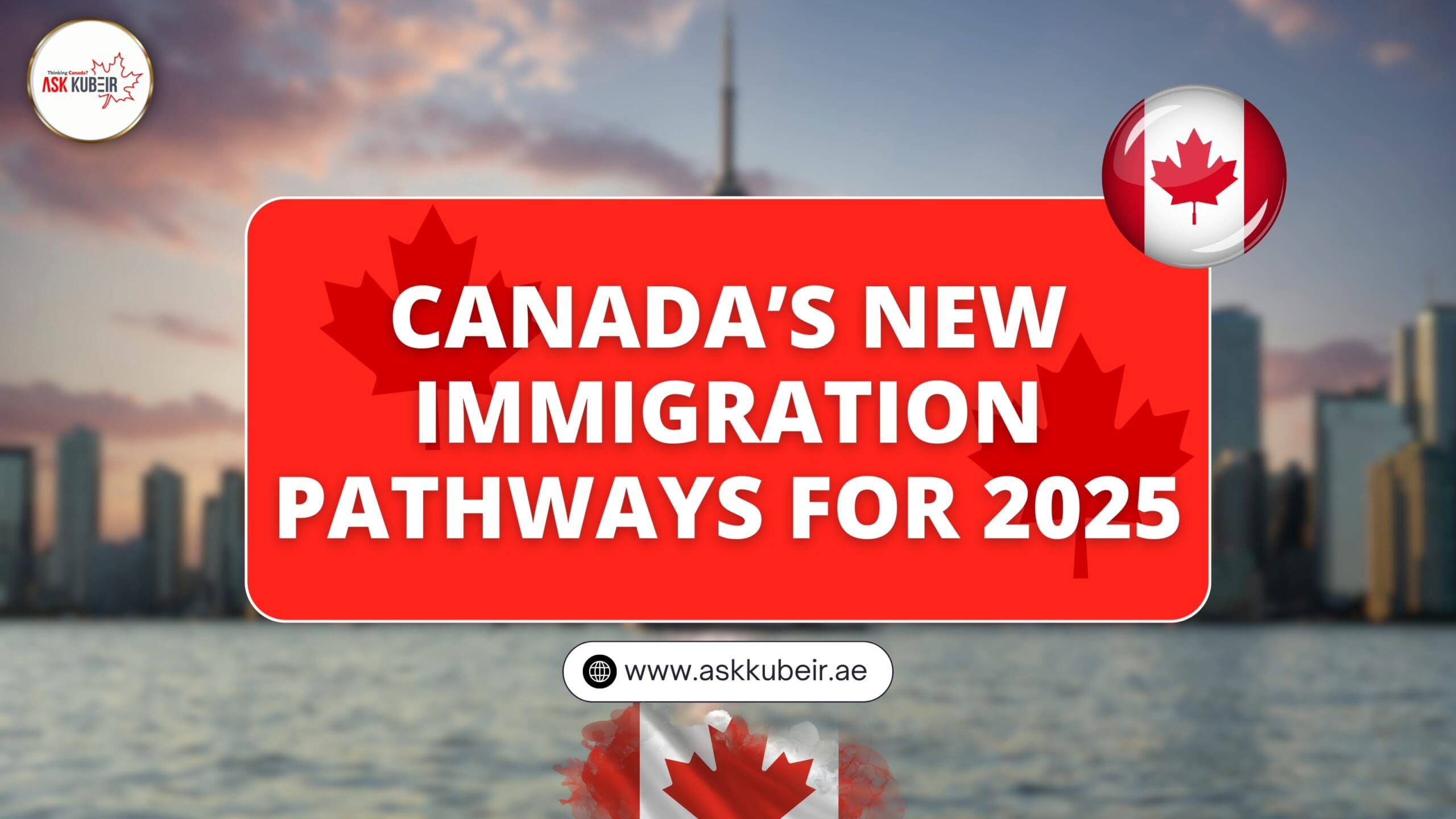
Canada is set to open its doors wider in 2025 with the introduction of several new immigration pathways aimed at addressing labor shortages and fostering community growth. These pathways promise exciting opportunities for foreign nationals seeking permanent residence in one of the most welcoming countries in the world.
Here’s a detailed look at these new initiatives, their intended beneficiaries, and the potential opportunities they bring.
Enhanced Caregiver Pilot Programs
Who is it for:
Home care workers, including home child care providers and home support workers.
Recognizing the growing demand for caregivers, Canada’s Immigration, Refugees, and Citizenship Canada (IRCC) announced two enhanced caregiver pilot programs on June 2, 2024. These new pilots replace the Home Child Care Provider Pilot and the Home Support Worker Pilot, which concluded successfully in June 2024.
Key Features:
- Permanent residency (PR) upon arrival, eliminating prolonged waiting periods.
- Opportunity to work for organizations offering temporary or part-time care for semi-independent individuals or those recovering from illnesses or injuries.
Eligibility Requirements:
Candidates interested in these programs must meet the following criteria:
- Achieve at least Level 4 proficiency on the Canadian Language Benchmarks (CLB) test.
- Possess the equivalent of a Canadian high school diploma.
- Demonstrate recent, relevant work experience.
- Secure a full-time home care job offer.
More details on the launch and eligibility criteria are expected to be revealed in the coming months.
Rural Community Immigration Pilot
Who is it for:
Newcomers willing to address labor shortages and settle in small rural communities in Canada.
Following the success of the Rural and Northern Immigration Pilot (RNIP), the new Rural Community Immigration Pilot will provide pathways to permanent residency for individuals who can contribute to labor needs in rural areas.
Key Features:
- Focuses on long-term settlement and community integration.
- Aims to strengthen rural economies and address labor gaps.
Expected Launch:
Originally scheduled for late 2024, this pilot has been rescheduled to 2025. Specific eligibility criteria are yet to be disclosed.
Francophone Community Immigration Pilot
Who is it for:
French-speaking foreign nationals interested in contributing to francophone minority communities outside Quebec.
As part of Canada’s Policy on Francophone Immigration, this pilot aims to bolster the demographic and economic growth of francophone minority communities. The program encourages French-speaking immigrants to settle in regions outside Quebec, ensuring their cultural and linguistic vitality.
Key Features:
- Attracts skilled French-speaking workers to rural and minority communities.
- Contributes to economic development and reverses demographic decline.
Expected Launch:
Announced alongside the Rural Community Immigration Pilot, this program’s eligibility details will be revealed closer to its launch in 2025.
Manitoba’s West Central Immigration Initiative
Who is it for:
Skilled workers interested in settling in Manitoba’s rural west-central region.
In response to labor market shortages, Manitoba introduced a three-year pilot program on November 15, 2024. This initiative collaborates with seven rural municipalities and the Gambler First Nation to meet the region’s labor demands.
Key Features:
- Addresses local workforce needs, building on Manitoba’s existing immigration strategies.
- Aims to bring approximately 240–300 skilled workers to the region over the next three years.
Details and Eligibility:
While no specific launch date or eligibility requirements have been announced, the program is expected to play a pivotal role in revitalizing Manitoba’s rural economy.
Why These Pathways Matter
Canada’s proactive approach to immigration reflects its commitment to addressing labor shortages, fostering cultural diversity, and ensuring economic stability. These programs cater to a broad spectrum of skilled workers, caregivers, and French-speaking immigrants, reinforcing Canada’s reputation as a global leader in immigration policy.
Key Takeaways for Aspiring Immigrants:
- Explore these pathways to determine eligibility and prepare early.
- Stay updated with announcements from IRCC regarding detailed eligibility criteria and application processes.
- Consider long-term settlement in communities aligned with your skills and goals.
With these new pathways, Canada continues to strengthen its immigration framework, welcoming individuals ready to contribute to its vibrant communities and thriving economy. Whether you’re a caregiver, a skilled worker, or a French-speaking professional, 2025 could be your year to call Canada home.
If you aspire to study and work in Canada but don’t know where to start, let Ask Kubeir guide you toward achieving your goals.
CONTACT US!
📞 Call us: 04 526 4646
📲 WhatsApp: wa.me/971529693030
🌐 Website: www.askkubeir.ae





